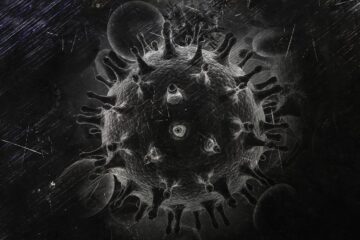![]()
Introduction:
The idea of human rights rests on the assertion that all humans are equal. All humans have dignity and it is the right of each individual to be treated equally. Anything that ruins the dignity is a violation of human rights because it violates the idea of equality and tiles the path for discrimination.
The human rights of lesbians, gays, bisexuals and transgender (LGBT) are taking their shape throughout the world along with important progressions in several countries.
Developments in India
The Indian Constitution mentions equality of social, political and economical status for everyone. Articles 14 and 21 of the constitution promise equal protection to all before the law. In NALSA v. Union of India[1], the Supreme Court of India mentioned that the rights and freedoms of the transgender community were protected by the Indian Constitution. Further in September 2018, in the case of Navtej Singh Johar v. Union of India[2], the Supreme Court decriminalized adult consensual same-sex relationships in the Section 377 of Indian Penal Code, 1860. Both of these verdicts are a landmark in the sense that their extensive reading leads to the empowerment of LGBT community constitutionally. These judgements have reversed a historical British imperial rule and also ordered that it is the right of the LGBT people to be accorded with all constitutional protections. This was a historical moment for the LGBT community but at the same time, it does not mean that this community is fully free or considered equal among all other fellow Indians. This shows that there is a lot more to be done in India and even in the world to remove obsolete and cruel anti-gay laws.
What more?
Considering the LGBT community as humans and providing them with their human rights along with the elimination of Section 377 of IPC, 1860 is not sufficient on the part of the society.
India is an immeasurable country in terms of its diversity, culture and attitude of the people. The experiences faced by the LGBT community are also vast. These experiences include verbal, sexual and physical harassment etc. at the public places. They are being looked down all the time. Even the family members do not accept these people. They feel that they are not the person who they were expected to be. This implies that these people are not being accepted by the society. For this purpose, several thousand members of the LGBT community get together and celebrate LGBT honour by rallying on the streets with the hope that this society would accept them. They expect that they would soon receive acceptance throughout India in all the states and union territories.
Many nations in the world, for example, the U.S.A. in the case Obergefell v. Hodges[3], have realised the importance of love and marriage in the life of a person. Therefore these countries have legalised same-sex marriage. They have realised that everyone has the right to marriage and marriage is the relationship of love and understanding between two people instead of gender.
In India, Section 377 of India Penal Code, 1860 has been abolished. This section said, “Whoever voluntarily has carnal intercourse against the order of nature with any man, woman or animal shall be punished…”[4] This section has been amended but unfortunately, the same-sex marriage has not been legalised in our country. It is because it is against the established norms and prejudices that are still prevailing in the society.
Every person has his/her way of living. But some people follow their prejudices and end up judging these people on their way of living. These prejudicial thoughts should come to an end because this biasness leads to the problems of unemployment, violence, poverty, discrimination and lack of healthcare which is all faced by the LGBT community. People think that they do not constitute the society and therefore should not be allowed to participate in any of the societal progressions.
Conclusion
In most parts of the world, there is a dominance of one sect of people over others whether it is religion, culture, race or gender. This division shows that all the humans are divided despite being united by living a human life. It is very disappointing on the part of entire humanity. Due to this division, when some rights are given to the less dominant sect of the society, it is celebrated as the grand celebration by those who have obliged them by doing so. When a transgender becomes the judge in the High Court of the state, it becomes a news headline on the front page. Why should this become a headline and that too on the first page? She had the merit to sit on that chair and she, based on that merit, was appointed as a judge. It could be a point of celebration for those who have been deprived of their rights but not for those who are the cause of this deprivation.
Specifically considering the LGBT community, the rights which they should have are the distant dreams. Currently, if they get desired space in their families and neighbourhood, then that would also be an achievement for them. Affection, marriage and care are not meant for this community because they act differently than the established societal norms. Due to this discrimination which results in frustration, there is an increased crime rate in these people. These days even the media acts selectively. Whatever suits their agenda is printed or telecasted by them. They are eager to highlight the offences committed by these people but there is hardly any media house which at the same time would also show the torments they are suffering because of the so-called normal people. They are tortured because they are treated like inhuman. Elementary education is the human right but they are deprived of this right also because they are considered inhuman.
The society must accept them as they are irrespective of their way of living. The constitution of India guarantees everyone the right to live. This does not mean just passing the days of life but it means enjoying each day of life. It is the responsibility of the dominant sect to incorporate them also within the society so that they also enjoy their right to life with its actual essence.
References:
[1] NALSA v. Union of India, AIR 2014 SC 1863
[2] Navtej Singh Johar v. Union of India, W. P. (Crl.) No. 76 of 2016 D. No. 14961/2016
[3] Obergefell v. Hodges, US SC 6: 576 U.S.
[4] Indian Penal Code, 1860, No. 45



0 Comments